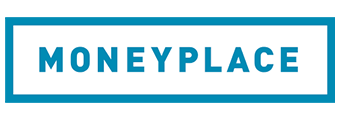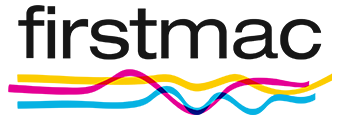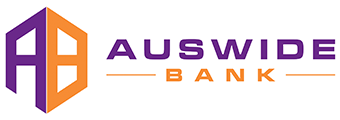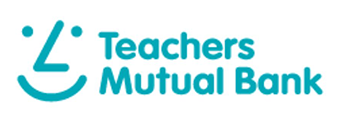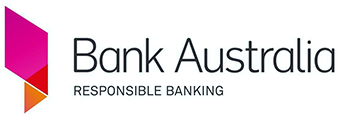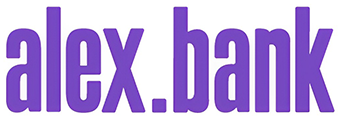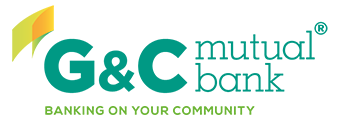Below are some of the loans designed for vehicle purchases, according to InfoChoice's product database, with a 5 year fixed term - a common subtype. Note, they may be different to what's featured in the above comparison table.
|
Brand |
Product |
Advertise % Rate Per Annum |
Comp. % Rate Per Annum |
|---|---|---|---|
| Harmoney | Unsecured Car Loan (5 Years) | 5.66% | 5.66% |
| Stratton Finance | Car Loan (5 Years) | 5.67% | 5.67% |
| MoneyPlace | New Car Loan (Excellent Credit) (5 Years) | 5.67% | 5.67% |
| MoneyPlace | Used Car Loan (Excellent Credit) (5 Years) | 5.80% | 5.80% |
| MOVE Bank | Green Car Loan (5 Years) | 5.89% | 5.89% |
Correct as of 16 February 2026.
What is a car loan?
A car loan is a personal loan taken out by people specifically to purchase a vehicle. You can take out a loan to buy both new and used cars.
Car loans in Australia typically range from $5,000 to $100,000, though some specialist or business lenders may offer amounts above that for high-value or commercial vehicles. The usual loan term is between one and seven years, with some lenders offering longer terms of up to 10 years, though this is less common. Most borrowers choose loan terms of three to five years.
How interest on a car loan works
Car loan interest payments are calculated like interest on any other loan. You take the interest rate (which will be changing if it is variable, constant if fixed) and multiply it by the outstanding amount owed on the loan on each day. You then divide this number by 365 to get the amount of interest due on each day.
Interest is normally due at the end of each month, so you add together this figure for all the days in the month to get the interest amount due.
As you pay down the principal (the original amount borrowed), the interest payable each day decreases, because it's calculated on a declining loan balance. This is known as amortisation.
See Also: InfoChoice Car Loan Calculator
Types of car loans
Secured car loan
A secured car loan is a type of financing where the car you're purchasing is used as collateral (security) for the loan. This means that if you default, the lender has the right to repossess the vehicle.
These loans are generally available for new or relatively new cars (typically no older than 7 years), as the vehicle must retain enough value to secure the loan. This type of car loan generally has lower interest rates compared to unsecured loans as the lender is exposed to less risk.
Unsecured car loan
An unsecured car loan is a type of personal loan used to purchase a car, without the vehicle being used as collateral. Because the vehicle isn't tied to the loan, the lender has no automatic claim on it if you fail to repay. However, they may still pursue legal action, which could lead to wage garnishment or court-ordered payment.
Unsecured loans typically have higher interest rates than secured loans as the lender takes on greater risk in the absence of security. Approval and interest rates largely depend on your credit score, income, and overall financial profile.
These loans are generally more flexible regarding the age, type, and condition of the vehicle being financed.
Green car loan
A green car loan is specifically designed to finance the purchase of environmentally friendly or fuel-efficient cars, such as electric vehicles (EVs) and hybrids. These loans often come with lower interest rates or special discounts compared to standard car loans, as an incentive to encourage the adoption of low-emission transport.
Eligibility typically depends on the car's emissions profile and efficiency rating, with many lenders requiring the car to meet specific environmental criteria.
Low doc car loan
A low doc car loan is a type of secured vehicle loan tailored for self-employed borrowers or business owners who are unable to provide the usual full income documentation required for standard car financing.
Instead of payslips and tax returns, lenders may accept alternative proofs such as business activity statements (BAS), bank statements, and a declaration of income from an accountant. Interest rates are typically higher, and terms may be stricter than full doc loans due to greater risk for the lender.
Used car loan
A used car loan is a type of vehicle financing designed specifically for the purchase of a second-hand or pre-owned car. These loans can either be secured or unsecured, depending on the lender and the car's age or condition. Some lenders may also allow financing private sale purchases.
Vehicle inspection and/or appraisal may be required. Usually, many lenders won't finance cars older than 10-12 years old. Comprehensive car insurance is often required for secured loans.
Chattel mortgage
A chattel mortgage is a type of secured business loan that can be used to finance the purchase of vehicles intended primarily for commercial use. To be eligible, the vehicle must be used for business purposes at least 51% of the time.
Under a chattel mortgage, the borrower owns the vehicle from the time of purchase, but the lender holds a mortgage (a security interest) over it as collateral. Once the loan is fully repaid, the mortgage is released, and the borrower owns the vehicle outright without encumbrance.
Novated lease
A novated lease is a three-way salary packaging agreement involving you (the employee), your employer, and a finance or leasing company. Under this agreement, you choose a vehicle, a finance company purchases it on your behalf, and your employer makes the lease payments by deducting them from your pre-tax salary.
The lease remains in place as long as you're employed with that company. If you leave, you'll need to take over the repayments directly. At the end of the lease term (usually 2-5 years), you can pay a residual value (balloon payment) to own the car, refinance the residual, trade it in, or return the vehicle (depending on the lease terms).
While not technically a car loan, since you're leasing rather than borrowing funds, a novated lease serves a similar purpose and is often listed alongside car finance options for comparison.
How to compare car loans?
There are several things you should be considering when comparing car loans. The first thing to remember is to always compare like for like products with one another. For example, compare secured car loans with other secured car loans.
You'll also need to assess the following:
Interest rates
The interest rate will be the biggest factor in how much your monthly repayments are. Interest rates are generally lower for secured loans and variable-rate loans. They can also vary based on the amount you are borrowing and the repayment time.
Many providers offer reduced rates for certain types of cars (e.g., electric or fuel-efficient vehicles). Another common distinction lenders make is between new and used cars (you will typically be charged more interest for older vehicles).
When you are choosing your next set of wheels, it's worth keeping this in mind. An electric car may suddenly become much more viable when you consider the reduced interest.
Fixed v Variable rates
A fixed rate means that the interest you will pay is set for the duration of the loan. This makes it easier to budget as you know that the amount you repay each month will not change. You are also protected if, for example, the RBA raises the cash rate and interest rates go up. However, fixed-rate loans can also incur 'break costs' if you want to pay it out early or refinance. They also tend to have fewer features than variable loans.
Variable rates mean that the interest rate you pay can change at any time. With variable rates, your monthly repayments will fluctuate with wholesale interest rates, so there's more unpredictability. You will also be impacted by cash rate hikes, although your rates can go down as well as up. Variable rates generally offer more flexibility with refinancing and extra features.
Term length
Choosing how long the loan will last is another important consideration. Naturally, a longer term loan will mean you repay less of the principal each month. However, longer loans also mean you end up paying more interest, as interest is calculated based on the monthly repayments rather than the overall loan amount.
A longer loan also means that your car will depreciate more while still under a finance arrangement. This usually means that you end up owing more money than the car is worth for an extended period. It also means you will have reduced equity if you decide to upgrade once again before the term is completed.
How does a car loan work?
A car loan is a formal finance arrangement between three parties: the person buying the car, the person selling the car (referred to as a vendor), and the lender.
There are six steps involved in this process.
- Search online and compare car loans. Find one that suits your needs.
- Apply for the loan.
- If approved, the lender will agree to lend you a specific amount to buy a vehicle.
- A purchase agreement must be signed with the vendor.
- The lender pays the vendor on your behalf.
- You repay the lender over the agreed period of time (typically between one and 10 years).
What are the advantages of getting a car loan?
Save the cash upfront for other things
Rather than saving a certain amount per month until you have the lump sum you'll need to buy upfront, you can get a car loan, make these payments to your lender instead, and get the car straight away.
Access a better car
By spreading the cost of a car across several years of repayments, you will also be able to afford a more expensive, newer, or better-equipped vehicle.
Build credit history
By taking a car loan and making sure to repay on time, you give lenders more evidence that you are a safe bet to lend money. This could help your chances of being approved for a bigger sum in the future, like a home loan.
What are the disadvantages of getting a car loan?
Interest costs
Interest costs mean you end up paying significantly more for a car than the drive away price you see on the dealership floor.
Late payment penalties
If you miss a repayment, you may be charged late payment fees, and additional interest may accrue on the overdue amount.
Risk of impacting your credit score and losing your car
If you default on your loan, your credit score will be affected, and if you used the car as security, the lender can repossess it as collateral.
How much can I borrow?
There are many things that influence your borrowing capacity. Lenders will assess your income, usual expenses, assets, and any existing debts you have (home loans or other personal loans, for example).
See Also: InfoChoice Borrowing Power Calculator
They will also review your credit history to check if you have defaulted on payments in the past. This helps them assess the risk that you might not repay the loan. If you have a history of missed payments or defaults, the lender may reduce the amount they're willing to lend or reject your application altogether.
A car loan can be secured by the car itself or, in some cases, by another asset like a term deposit. The loan is secured to the value of the asset, and the lender can sell the security if you default. Secured loans are more likely to be approved and usually mean reduced interest rates.
How to apply for a car loan
Once you have a good idea of how much you are looking to borrow, and you have chosen the provider that suits you best, you can apply for most loans online. This process tends to be fairly straightforward.
For a smooth and comfortable car loan application, you will need to provide your chosen lender with a range of documents that prove you're a reliable borrower. These documents are:
Proof of identification
Your driver's licence, passport, birth certificate and Medicare card are all examples of proof of identification. Some lenders may also need to see a copy of your licence to verify that you are allowed to drive the car you are buying.
When assessing your application, a lender will require the following:
-
Your full name
-
Your age
-
Your date of birth
-
Current address
-
Citizenship information
-
List of dependents
To verify this information, they will need 100 points of ID (driver's license, passport, Medicare card) and either a utility bill, council notice, tenancy agreement, or mortgage statement.
Proof of income
Your lender will need evidence of your capacity to repay the loan. Depending on your employment status, a lender will ask for:
-
Payslips - two most recent payslips
-
Bank statements - for the last three months, showing your incoming and outgoing expenses
-
Tax returns or BAS - if you're self-employed or own a business, you may need to supply this documentation
Proof of assets and liabilities
A lender may also ask for a list of your assets (e.g. savings), as well as liabilities (e.g. existing debts) and current living expenses (e.g. rent or mortgage repayments). This shows you can cover your regular outgoings, can save money, and thus are likely to comfortably repay the loan.
-
Detail on any income-generating assets you may have, e.g. savings, property, investments, stocks, etc.
-
Information on existing loans/debts, e.g. mortgage, personal loan, credit cards, etc.
-
A summary of your superannuation
Information about your car and insurance
As some loans are dependent on the type and age of the car, you'll need to provide information about the vehicle you intend to purchase. This is usually more common with secured car loans.
You may need to supply the following information:
-
An invoice from the dealership or a contract of sale
-
The year, make, and model of the car
-
Vehicle chassis number
-
Registration details
-
Details on the car's fuel efficiency (if applying for green car loan discounts)
-
Confirmation of comprehensive car insurance
Credit score
Lenders will assess your creditworthiness by reviewing your credit report, which includes your credit score. Checking your credit score before you apply can give you a clearer idea of your likelihood of approval and help you address any issues in advance.
What car loan fees and expenses are there?
Car loans often come with additional fees that you'll need to pay on top of your interest and principal repayments. Many lenders charge application or establishment fees, which are one-off costs to set up the loan.
You may also encounter monthly service fees, late payment (arrears) fees, early repayment fees, or break costs, depending on the loan terms.
These charges vary between lender, so it's important to review the comparison rate when comparing loans. A comparison rate includes the interest rate plus most mandatory fees, providing a more accurate reflection of the true cost of the loan. It's useful when comparing similar loan products.
In addition to loan-related costs, there are other expenses associated with purchasing and owning a car. These may include:
-
Stamp duty on vehicle ownership transfer
-
Vehicle registration fees
-
Compulsory and optional insurance (e.g., CTP, comprehensive)
-
Ongoing running and maintenance costs (fuel, servicing, tyres)
Some of these may be covered under various car lease schemes. If you don't currently own a vehicle, it's important to factor these expenses into your overall budget when deciding how much to borrow.
Car loan features
There are all sorts of extra features car loan providers may offer. Generally, more features are associated with higher fees, although this does vary.
Here are some of the most common car loan features you may encounter:
Extra repayments
Some loans will allow you to make extra repayments without any penalties, whereas others might penalise you. If you think that you are likely to have extra money at some point during the loan's term, this is something to prioritise, as you may decide to make additional contributions to pay the loan off faster.
Redraw facility
Some loans that come with an extra repayment feature will also allow you to take out any additional funds above your minimum repayments. However, redraws may incur fees, and you may be restricted by limits on the amount you can redraw or how often you can access the funds.
How to secure a low interest rate car loan
There are several steps you can take to improve your chances of getting a low or competitive interest rate on a car loan in Australia.
1. Choose a new or near-new car
Many lenders extend their lowest interest rates to new or demo vehicles. Some might still offer competitive interest rates for used cars up to three years old, but interest rates typically increase as the vehicle ages. Cars older than seven years are often considered higher-risk and may not qualify for lower or secured loan rates.
2. Opt for secured rather than unsecured
A secured car loan is backed by the car itself as collateral. Because the lender can repossess the car if you default, this reduces their risk and generally allows them to offer lower interest rates compared to unsecured loans.
The trade-off, however, is that lenders require the vehicle to be new, demo, or lightly used to qualify for secured finance. Older cars, classic cars, or imports often don't meet secured loan criteria and may need to be financed with an unsecured personal loan, which usually has a higher rate.
3. Compare the comparison rate
Some lenders offer a low advertised rate, only to charge a lot of fees. Thus, always check the comparison rate. The comparison rate incorporates most mandatory fees and charges, giving you a better idea of the true cost of the loan over time.
A few hundred dollars here and there can really add up when you look at the overall picture. In this instance, it could be worth looking at a slightly higher advertised rate where the comparison rate more closely matches.
4. Look at ways to pay it off early
One of the best ways to pay less interest is to make extra repayments on your car loan, where possible. This can reduce the amount of interest payable over time and potentially reduce the length of your loan. However, not all lenders allow this without penalty.
Check if the loan allows extra repayments, redraws, and early termination without fees. Some lenders charge early exit or early repayment fees, so weigh these costs against your savings to see if it's worth it.
Other factors influencing your car loan rate
Beyond the type of car and whether your loan is secured, several other factors can affect the interest rate you're offered.
1. Your credit history
Your credit history is a key factor in any loan assessment. While secured loans may be more forgiving, unsecured car loans are typically more sensitive to your credit score since they are largely dependent on it.
Multiple missed repayments, loan defaults, or a high debt-to-income ratio can raise red flags for lenders. This may result in a higher interest rate or even a loan rejection.
2. If you're self-employed
Self-employed applicants, especially new or sole traders, might struggle to qualify for low-interest car loans. This is because many of the top rates are reserved for those with regular PAYG income from stable employment.
If you're self-employed, you may need to provide at least two years of business activity statements (BAS) and financial records to prove your income.
Alternatively, you may opt for a low doc car loan, but these often come with higher interest rates and stricter terms due to the increased risk to the lender.
3. Having a deposit
While it may not lower the interest rate itself, coming into the car loan with a deposit can boost your credibility in the eyes of the lender. By contributing upfront, you reduce the amount borrowed, which lowers the total interest payable over the life of the loan. It also signals to lenders that you're financially responsible, which may help with loan approval or negotiation.
4. Loan features and flexibility
Car loans may offer extra features such as unlimited extra repayments as well as a redraw facility. While useful, these may come with extra fees, which should form part of your overall interest rate and cost calculation.
It's important to evaluate whether the flexibility is worth the added cost. If you plan to make regular extra repayments, these features may save you money long-term, provided the fees don't outweigh the benefits.
Do your research, choose an honest and transparent lender.
When it's time for a new car, you might think it's worth paying an extra percent or two at the dealership to get the car sooner - but we assure you that is not the case.
Many lenders, particularly online lenders like us, offer car loan pre-approval, and far lower interest rates than dealerships, potentially saving you hundreds, if not thousands, on your car finance. Some can even turn around an approval and settlement for you in record time, so there's no reason not to head to the dealership with your finance sorted, so you're prepared to buy.
Our top tip - always read through the fine print and opt for someone transparent and honest to help you with your car loan.



